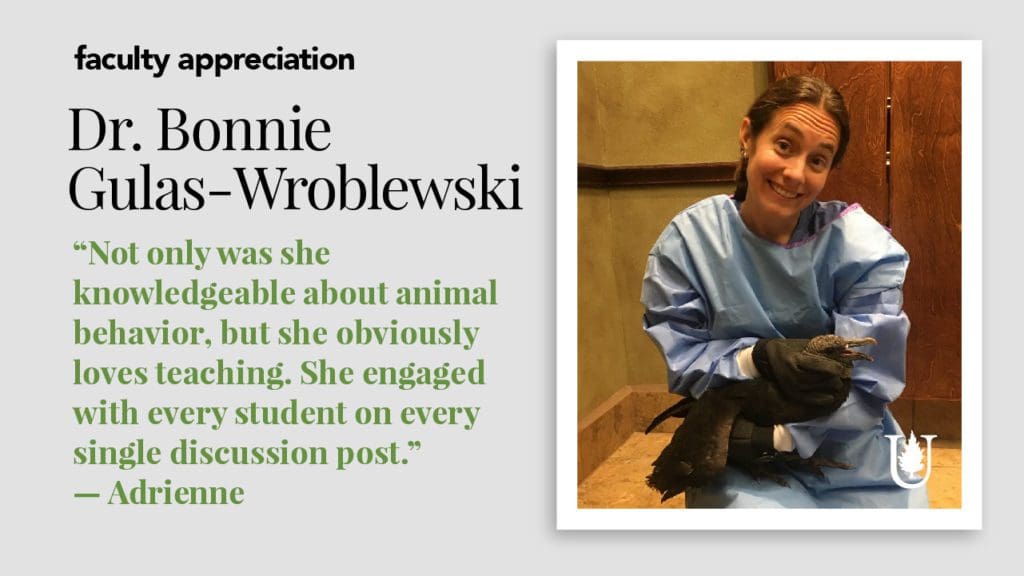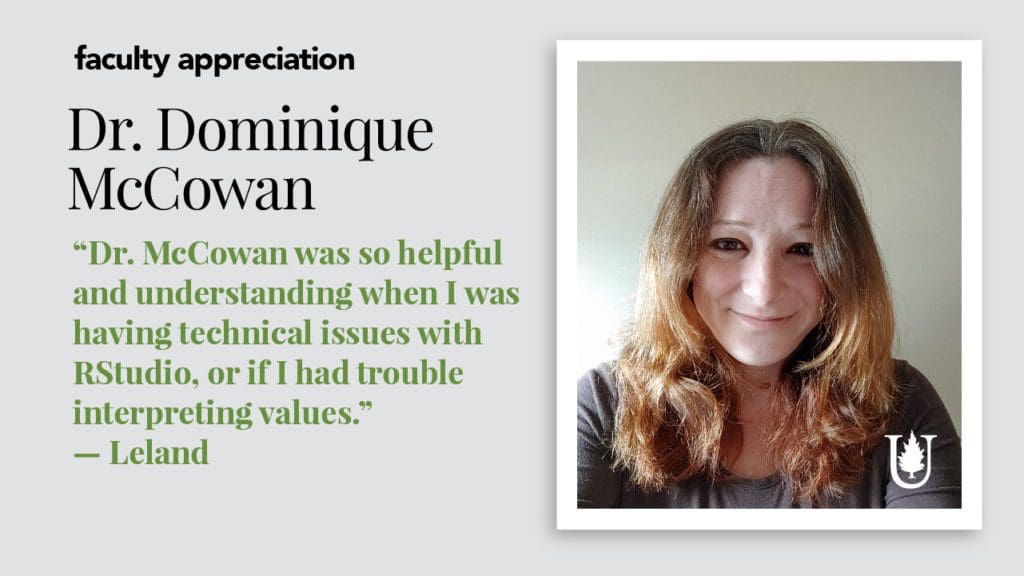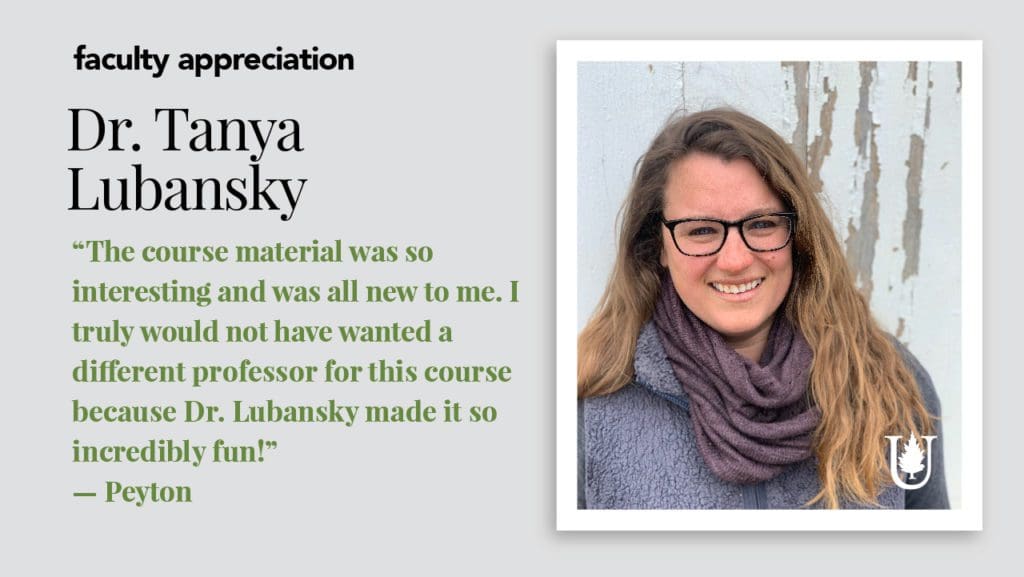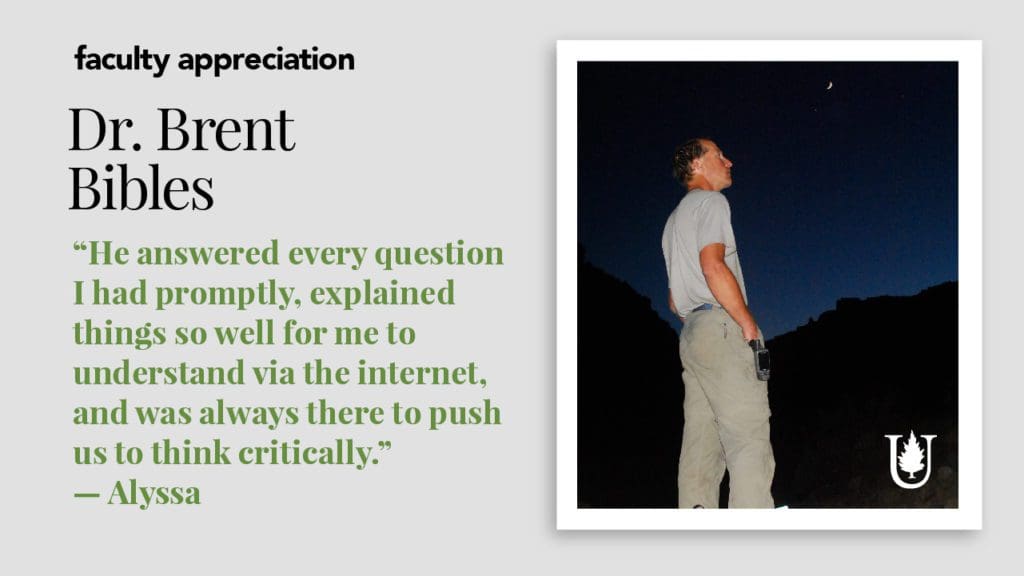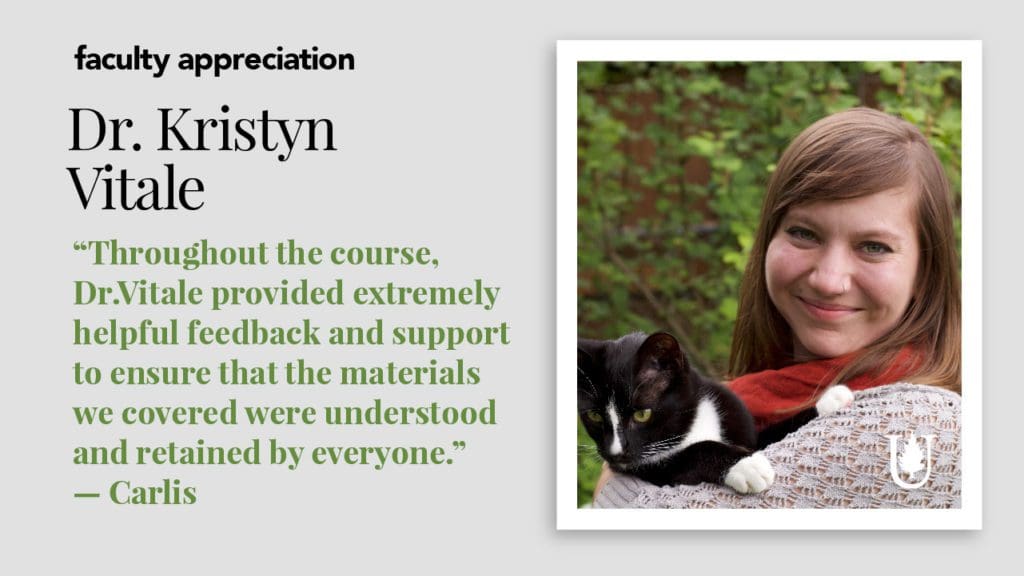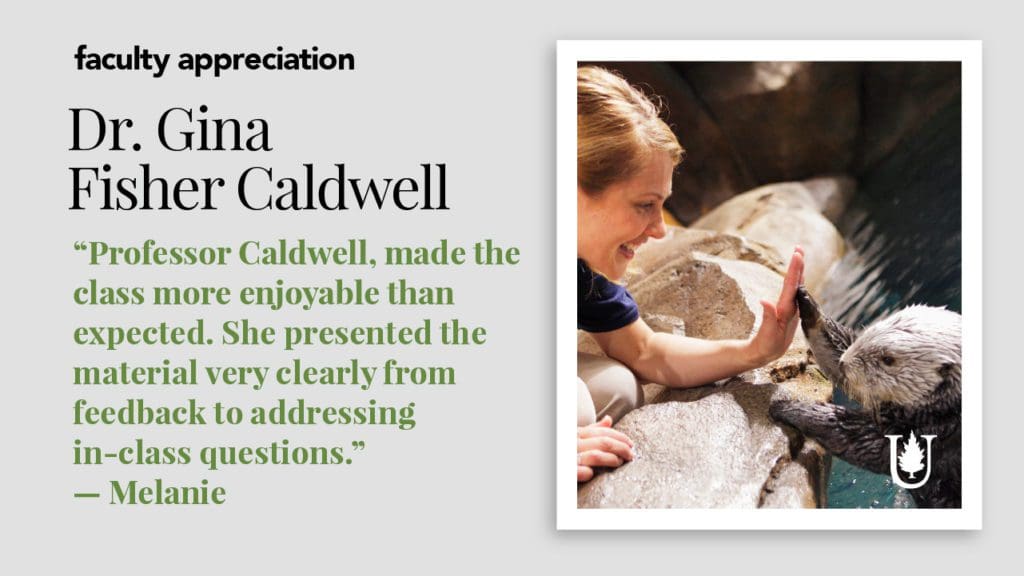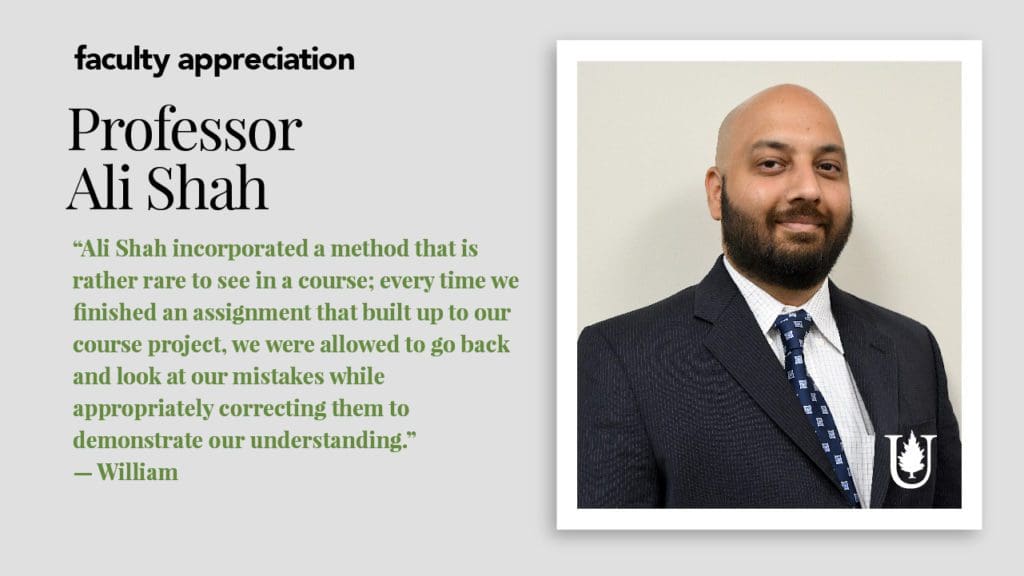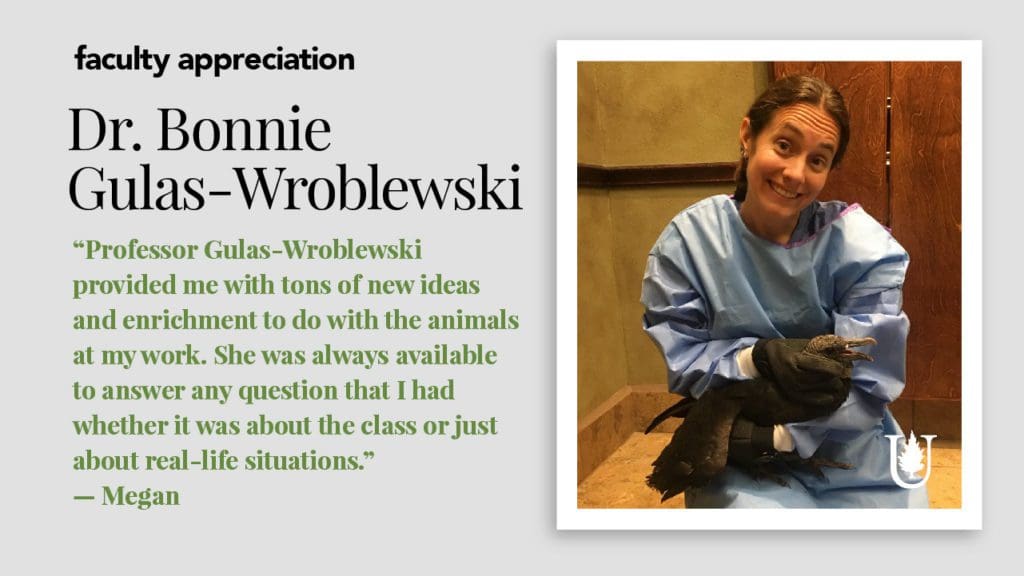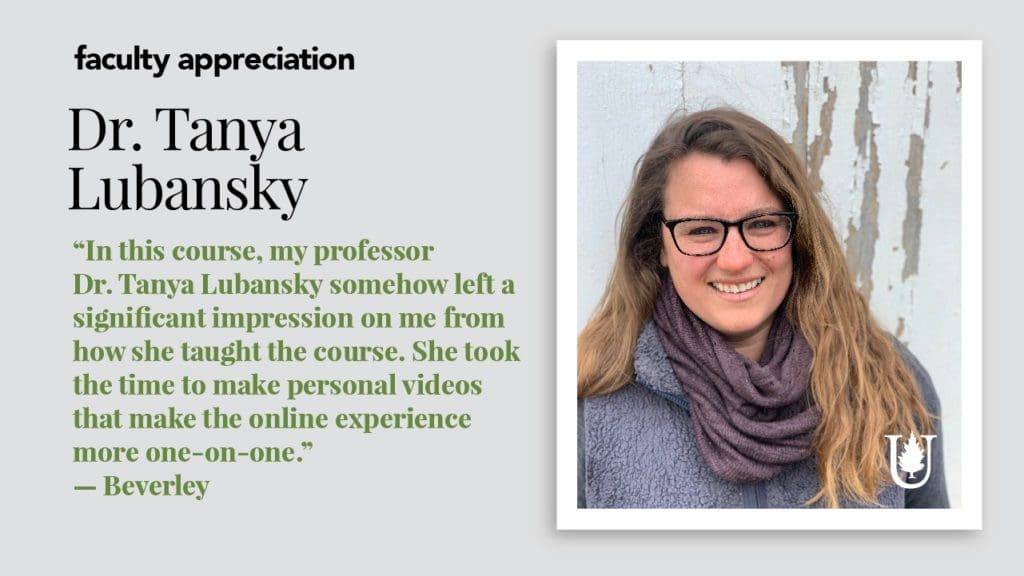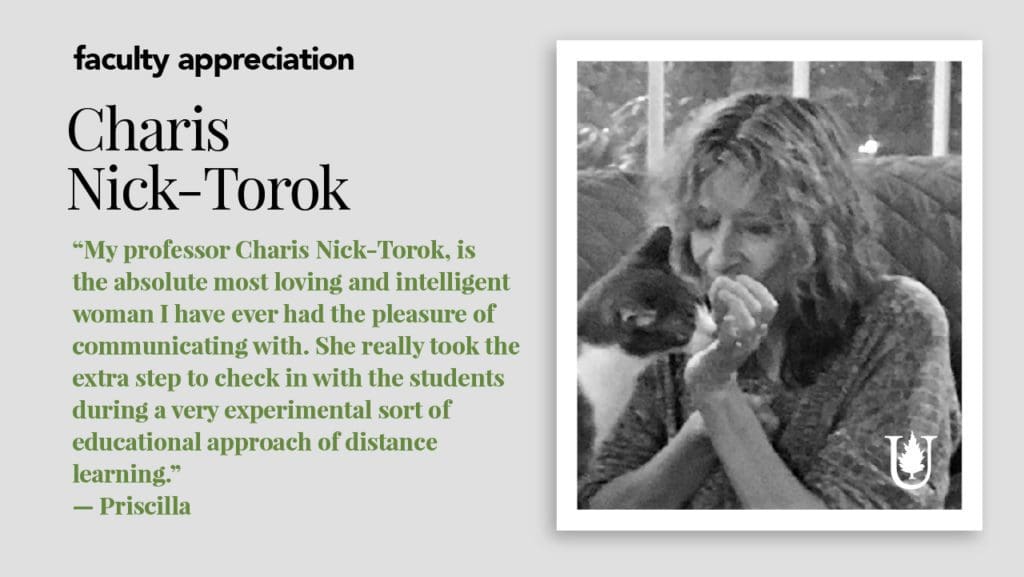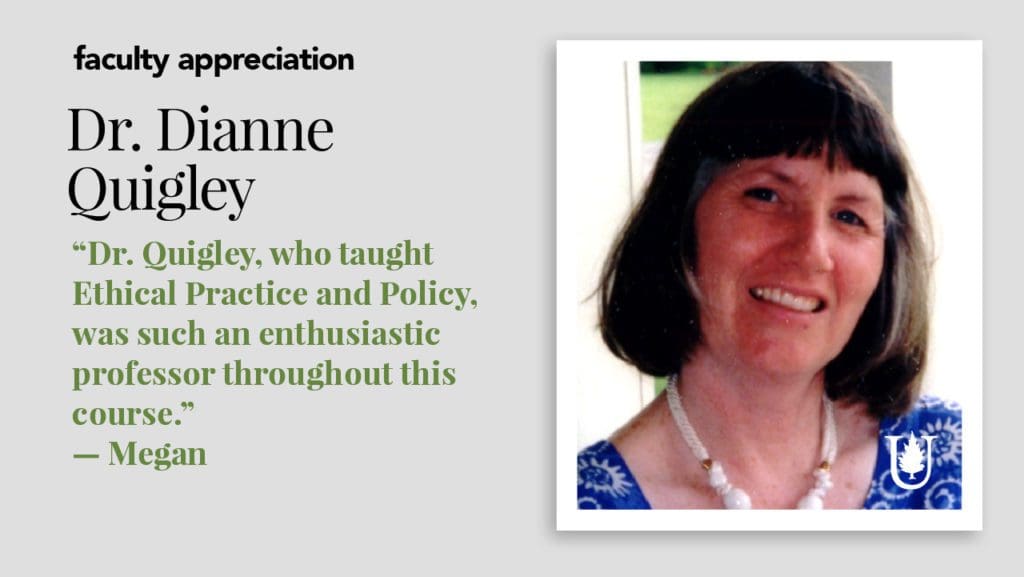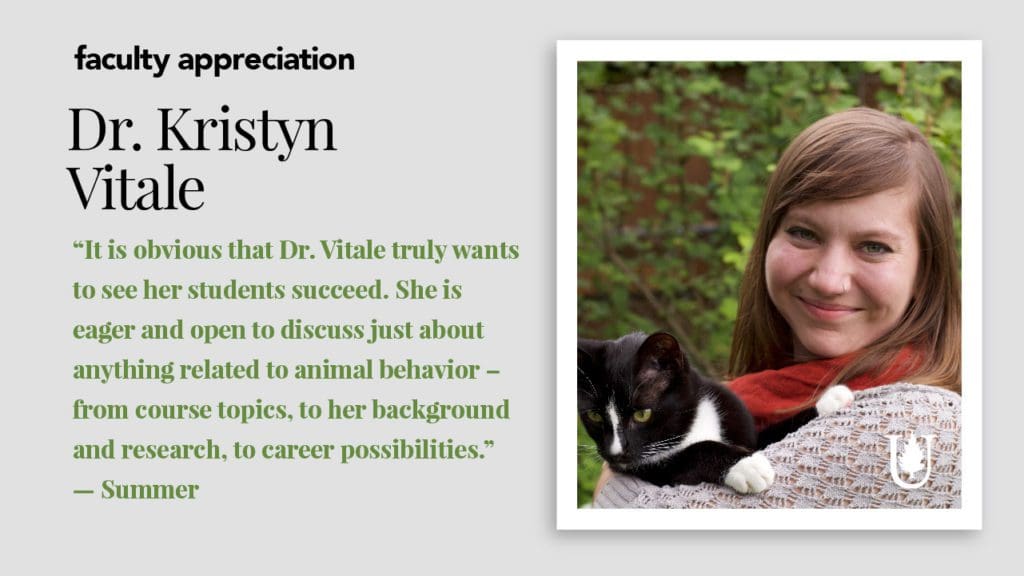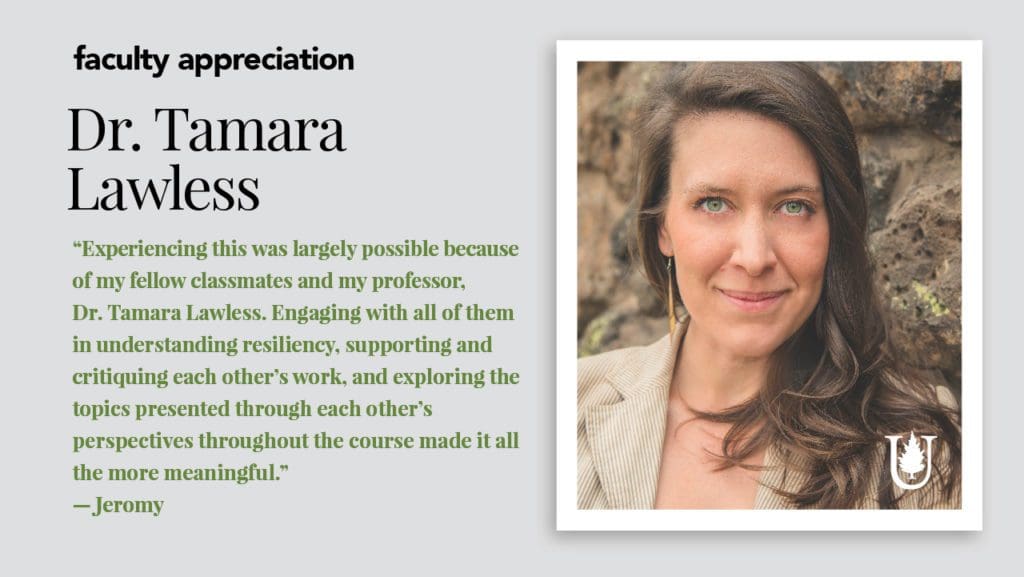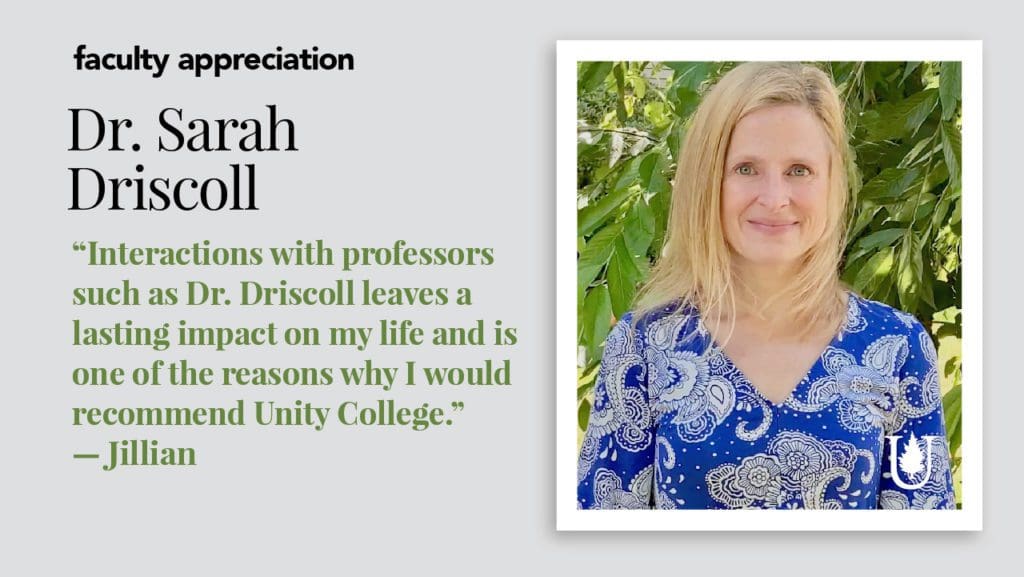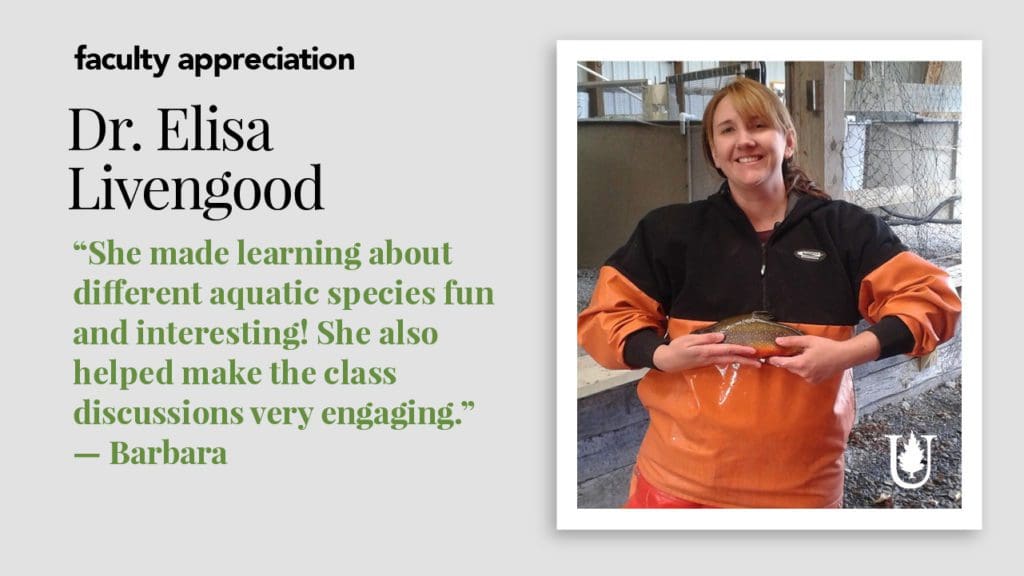
Distance Education Faculty Spotlights
Distance Education Faculty
experts in their field
Unity Environmental University Distance Education Faculty not only teach but work in their respective fields. They are an excellent resource for understanding the many different types of career opportunities you can aspire to have upon earning your degree.
Distance Education Faculty Spotlights
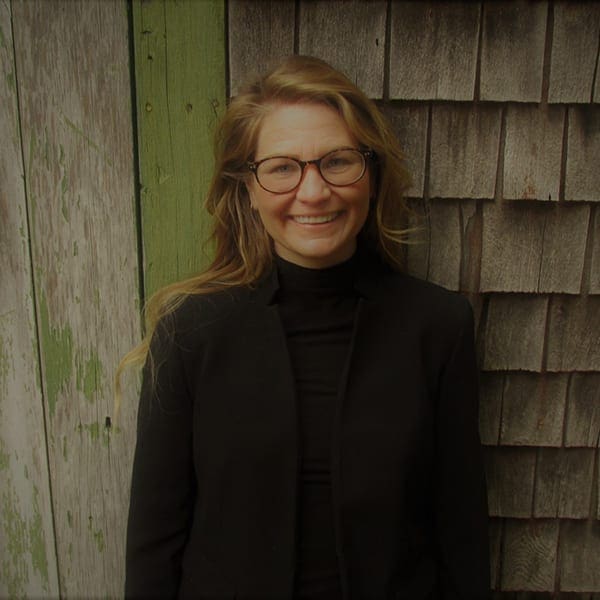
Amanda Moeser
Instructor of Marine Biology and Sustainable Aquaculture
Amanda Moeser’s past research experience includes studying interactions between wild fisheries and aquaculture, aquatic community ecology, coastal habitat restoration, and transdisciplinary governance of marine social-ecological systems. She has also built shellfish reefs and led community-based marine conservation projects for The Nature Conservancy.
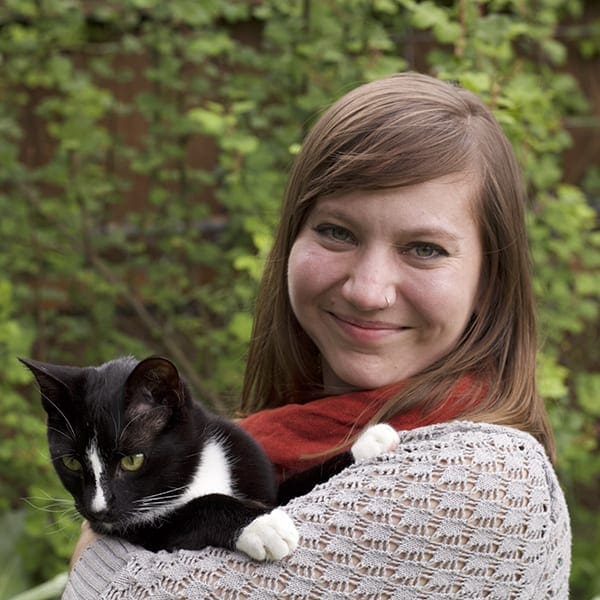
Dr. Kristyn Vitale
Assistant Professor in Animal Health and Behavior
Dr. Kristyn Vitale is Assistant Professor in Animal Health and Behavior at Unity Environmental University.
Dr. Vitale’s areas of specialization are animal behavior, animal cognition, and human-animal interaction. Her research focuses specifically on domestic cat behavior and the cat-human relationship.
Dr. Vitale talks about her research experience and advises on how you can get involved in research as well!
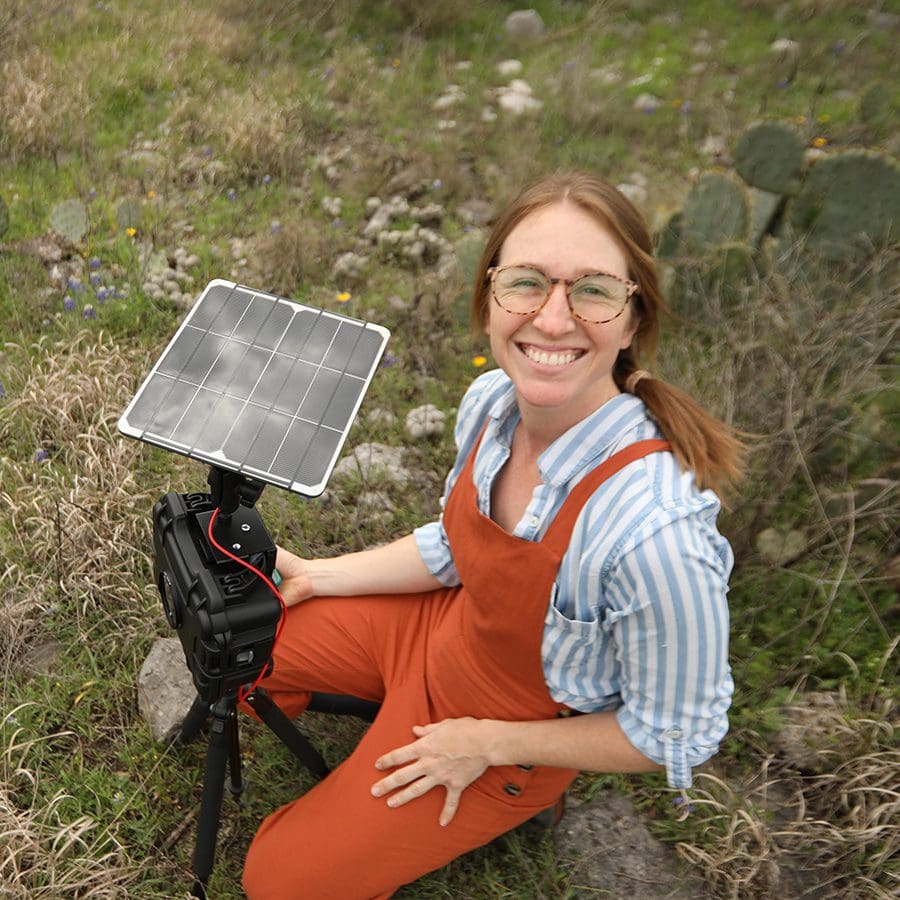
Dr. Megan O’Connell
Assistant Professor of Environmental Communication and Information Literacy
Dr. Megan O’Connell is an ecologist and conservationist based out of the Botanical Research Institute of Texas where she leads their conservation botany research program. Dr. O’Connell’s expertise range from field ecology, conservation and community science, plant-mutualist interactions, population and landscape genetics, botany, science communication, and science media production.
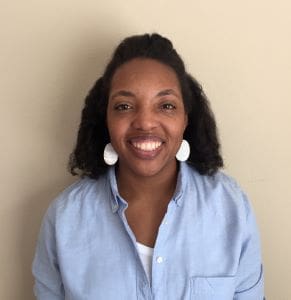
Dr. Danielle Reid
Adjunct Faculty in Environmental Science
Dr. Danielle Reid is an Adjunct Professor in the College of Distance Education at Unity Environmental University. She obtained her Bachelors in Chemistry degree, with a double minor in Biology and Spanish, from Xavier University of Louisiana. Following this, she spent a summer conducting research for a clinical trial in the Environmental Toxicology program at the UC Davis Genome Center. Eager to learn more about the field of Environmental Toxicology, Danielle transitioned to Tulane University where she received her Masters of Science in Public Health (MSPH) and PhD in Environmental Toxicology and Risk Assessment. During her tenure at Tulane, she spent several years unraveling the impact of the Gulf Oil Spill on workers exposed during the remediation efforts. She also spent time working in the field of Industrial Hygiene at the NASA Michoud Facility and on small research-based initiatives such as air sampling & monitoring for homes impacted by Hurricane Katrina. Danielle is the author and co-author of several peer-reviewed research journal articles in respected journals like Toxicology In Vitro and Gene Reports. Currently, she enjoys mentoring budding professionals in the field of Environmental Health and Industrial Hygiene through teaching. She also owns a business called Science L.E.A.F that focuses on developing curricula content for major publishing companies, universities, and smaller organizations.
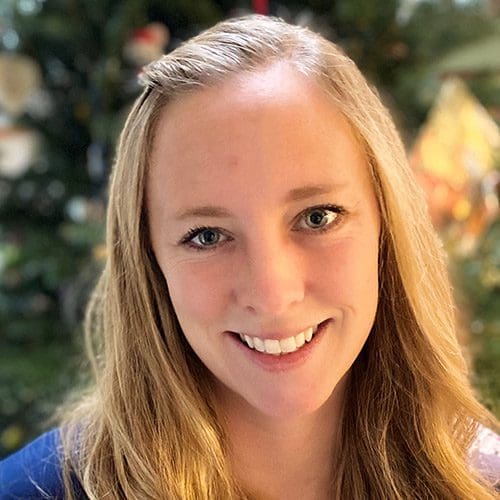
Dana Kennedy
Instructor of Animal Health and Behavior
Dana Kennedy received her B.S. in Zoology from Michigan State University and holds a M.A. in Zoology from Miami University’s Global Field Program. She worked as a zookeeper at the North Carolina Zoo for seven years where she excelled at animal training and visitor education. Her M.A. work centered around a zookeeper’s role in conservation education in relation to human-wildlife conflict. Some of her most memorable training moments included team training white rhinos for voluntary artificial insemination, training baboons for ultrasounds and voluntary blood draws, and helping a bear overcome both weight issues and stereotypic behaviors through training and diet changes.
Through her work as a graduate student she realized that her true passion lies in education. She began transitioning to the education field shortly after she graduated, teaching classes for the Global Field Program that centered around conservation, education, and community. As a graduate from an online program, she understands the needs of students learning remotely and strives to take the distance out of distance education. Outside of teaching, she focuses much of her time on her two young daughters and enjoys hiking and traveling.
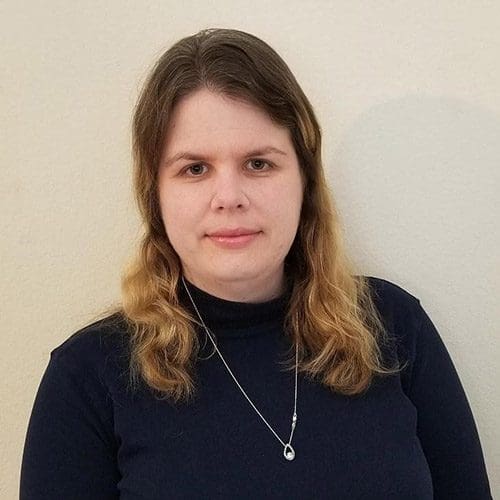
Dr. Christiana Wittmaack
Instructor of Marine Biology
Christiana Wittmaack obtained her Ph.D. in Environmental Toxicology from the Institute of Environmental Health, Texas Tech University, in Lubbock Texas. There she conducted research on analytical and molecular toxicology in whales. She also collaborated on projects involving sea turtles and sharks. It is hard to imagine a marine mammal lab sitting right in the middle of the Texas panhandle (where the local flora and fauna includes prairie dogs and tumbleweeds) but Christiana made this high desert prairie her home, where she currently resides. She obtained her M.S. in Coastal Zone Management from Nova Southeastern University Oceanographic Center. While there, she studied pinnipeds and domoic acid toxicosis. She received her B.S. in Psychology from the University of Phoenix. Currently, Christiana is conducting endocrinological research on whales and sharks. Christiana’s research interests are primarily in the marine mammal sciences. She has worked with pinnipeds in rehabilitative hospitals, participated in health studies of pinnipeds, conducted line transect surveys for beaked whales in the Bahamas, and delved into laboratory work where she works with whale cell lines and blubber biopsies. She has taught toxicology at both the graduate and undergraduate level and trained numerous graduate and undergraduate interns. Her teaching philosophy is one of teamwork. Everyone is treated equally, and she takes an interest in all her students, striving to help them grasp content and technique.
Last Updated on July 22, 2024
Faculty Appreciation
